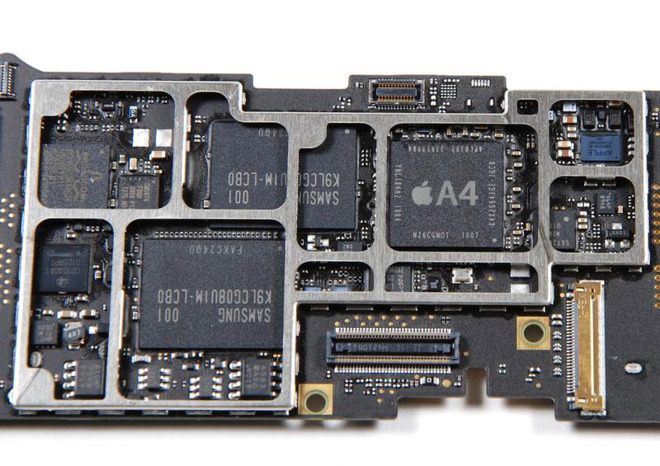Apple's bid to invalidate a California Institute of Technology patent that lies at the heart of a $1.1 billion patent infringement verdict was quashed on Thursday, leaving the tech giant on the hook for $838 million.
The U.S. Court of Appeals for the Federal Circuit affirmed a 2018 decision by the Patent Trial and Appeal Board that upheld the validity of U.S. Patent No. 7,116,710, granted to Caltech in 2006, reports Bloomberg Law. Apple in a parallel filing challenged the wireless technology patent covering data coding systems on grounds that the invention is obvious and therefore not eligible for protection under patent law.
The '710 patent was one of four Caltech properties leveraged in a 2016 lawsuit that claimed Apple and Broadcom infringed on valuable IRA/LDPC encoding and decoding technology. As it applies to Apple devices, the patents-in-suit cover chips supporting 802.11n and 802.11ac wireless technologies.
In January, a federal jury sided with Caltech and in a verdict awarded the university $1.1 billion in damages and potential royalties.
During the trial Caltech's lawyers argued a hypothetical licensing deal in 2010 for chips used in iPhone, iPad, Mac, Apple Watch and other products would have brought in some $1.40 per device from Apple and 26 cents each from Broadcom. That calculation was adopted by the jury to level an $838 million fine for Apple and accompanying $270 million fine for Broadcom.
Apple tried to counter the claims by saying it used common Wi-Fi chips supplied by Broadcom, suggesting it was not responsible for the development of encoding and decoding solutions that might infringe on Caltech's IP.
Both companies plan to appeal the ruling.
 Mikey Campbell
Mikey Campbell








 Brian Patterson
Brian Patterson
 Charles Martin
Charles Martin


 Malcolm Owen
Malcolm Owen
 William Gallagher
William Gallagher
 Christine McKee
Christine McKee
 Marko Zivkovic
Marko Zivkovic









16 Comments
Apple is not being very smart with their legal team recently.
So, did Broadcom infringe the patent and leave its customer on the hook? If so, aren't all of Broadcom's Wi-Fi chip customers targets too? Did Apple perhaps contribute to the coding algorithms for its purposes?
I went to the USPTo website referenced in this story and did a search for wire(less). Nothing came up. This is a very abstract patent and I have to wonder how it even applies to wireless technology in such a way that anyone could even verify that Apple and Broadcom are using it. Here's the abstract. I doubt any jury has the faintest idea what any of this means.
"A serial concatenated coder includes an outer coder and an inner coder. The outer coder irregularly repeats bits in a data block according to a degree profile and scrambles the repeated bits. The scrambled and repeated bits are input to an inner coder, which has a rate substantially close to one."